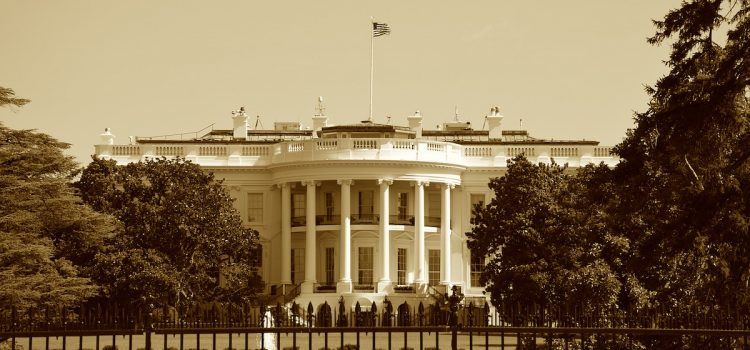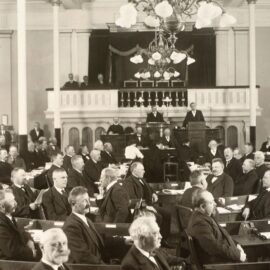
Why did Abraham Lincoln choose Andrew Johnson as his running mate? Did Johnson carry on Lincoln’s work?
Historian and biographer Jon Meacham writes about the life and leadership of Abraham Lincoln in his book And There Was Light. He also discusses the drastic change of course in the presidency and nation after Lincoln’s assassination.
Read more to learn about Lincoln and Johnson, according to Meacham.
Lincoln and Johnson
Lincoln’s death meant that his vice president, Andrew Johnson, became the new president. Johnson took office on April 15, 1865—the same day that Lincoln was pronounced dead.
Lincoln and Johnson were running mates and served together for the duration of Lincoln’s administration. However, Johnson—a conservative Democrat—held very different views from Lincoln’s. In fact, Meacham says that Lincoln chose him as vice president as a way to placate racist whites who would otherwise not have supported the Lincoln administration.
Meacham says that Johnson’s presidency was a disaster for race relations and Black social progress. After taking office, Johnson rejected many of Lincoln’s ideas for postwar Reconstruction; Johnson was more interested in quickly restoring order and rebuilding the country than in protecting the rights and liberties of formerly enslaved people.
In fact, according to Meacham, Johnson didn’t think that Black people were capable of governing themselves; therefore, he said that whites must continue to control the South. As a result, although the institution of slavery had been overthrown, white supremacy continued in the form of legal segregation, lynchings, and Jim Crow laws.
| President Johnson and Jim Crow Laws Meacham’s description is quite a bit harsher than that of many other accounts of President Johnson. Some historians say that Johnson seemed to agree with Lincoln’s ideas at first, and he stuck to Lincoln’s plan for Reconstruction. Johnson appointed special governors to the former Confederate states and instructed them to draft new state constitutions outlawing slavery and affirming the states’ loyalty to the United States. Once that was done, the rebel states would be reinstated into the Union with all rights intact, as though they’d never tried to secede. Furthermore, while other sources do agree that Johnson fought against expanding civil rights and protections for formerly enslaved people, these sources say his resistance came as a surprise to many of his colleagues. The fact that Johnson was, apparently, not known for racism clashes with Meacham’s assertion that Lincoln chose him specifically to appease white supremacists. However, the outcomes of Johnson’s presidency aren’t in question. Due to Johnson’s conservative beliefs in states’ rights and a small central government, Southern states had free reign to use anything short of slavery to keep Black people powerless and subservient. For example, “Black Codes” (more commonly known as Jim Crow laws) required Black people to hold jobs at all times or else be arrested for vagrancy; no such law existed for white people. Black Codes also legalized racial segregation, thereby forcing Black people into separate (and usually worse) neighborhoods, schools, and jobs. Finally, while racially motivated killings weren’t officially legal, thousands of Black people were murdered during the Reconstruction era. Most of those murders ended with nobody arrested or prosecuted, and the police themselves committed some of them. |






